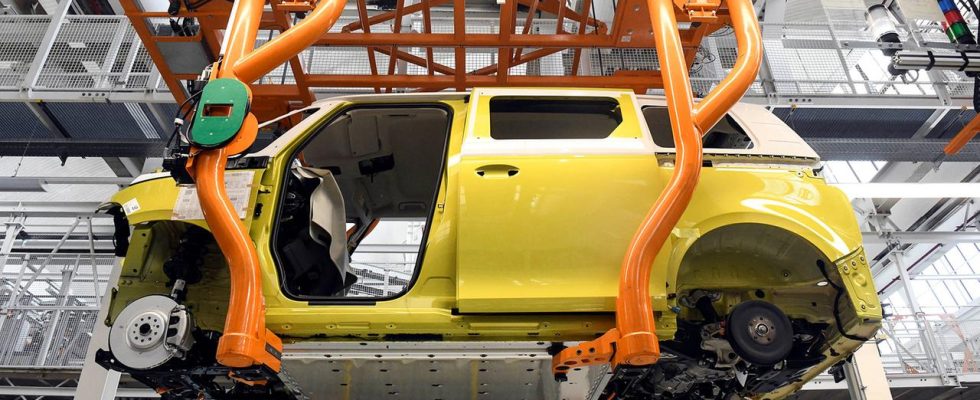The order backlog in German industry is getting shorter. The reason for this is that supply chains are working better again. The automotive industry in particular breathes a sigh of relief.
The backlog of orders in German industry is dissipating more and more in view of the better functioning supply chains. In March, the backlog of orders in the manufacturing sector fell by 1.3 percent compared to the previous month.
In the entire first quarter, the order backlog fell by 1.0 percent compared to the previous quarter, as announced by the Federal Statistical Office.
Significant decline in the automotive industry
In the automotive industry in particular, there was a significant decline in orders on hand. Manufacturers of motor vehicles and parts for motor vehicles recorded a 2.5 percent decline in March compared to the previous month.
For a long time, the industry had to struggle with material shortages, for example in the case of semiconductors. Thanks to improved supply, orders can now be processed more quickly, which reduces the backlog of orders. Bucking the trend, however, inventories at manufacturers of metal products rose by 2.5 percent.
range of backlog slightly decreased
The range of orders on hand also decreased slightly in March. It is now 7.4 months compared to 7.5 months in February. The range indicates how many months the companies would theoretically have to produce without new orders if the turnover remained the same in order to process the existing orders.
For manufacturers of capital goods such as machines and vehicles, the range fell from 10.7 to 10.5 months. For producers of intermediate goods, it remained unchanged at 3.8 months. For consumer goods manufacturers, on the other hand, the range increased slightly from 3.5 to 3.6 months.
procurement problems lose weight
Complaints from industrial companies about problems in procuring raw materials and intermediate products decreased in April for the seventh month in a row.
Only 39.2 percent of the companies reported bottlenecks, after 41.6 percent in March. This is the lowest value for around two years, as the Munich ifo Institute found out in its survey.

